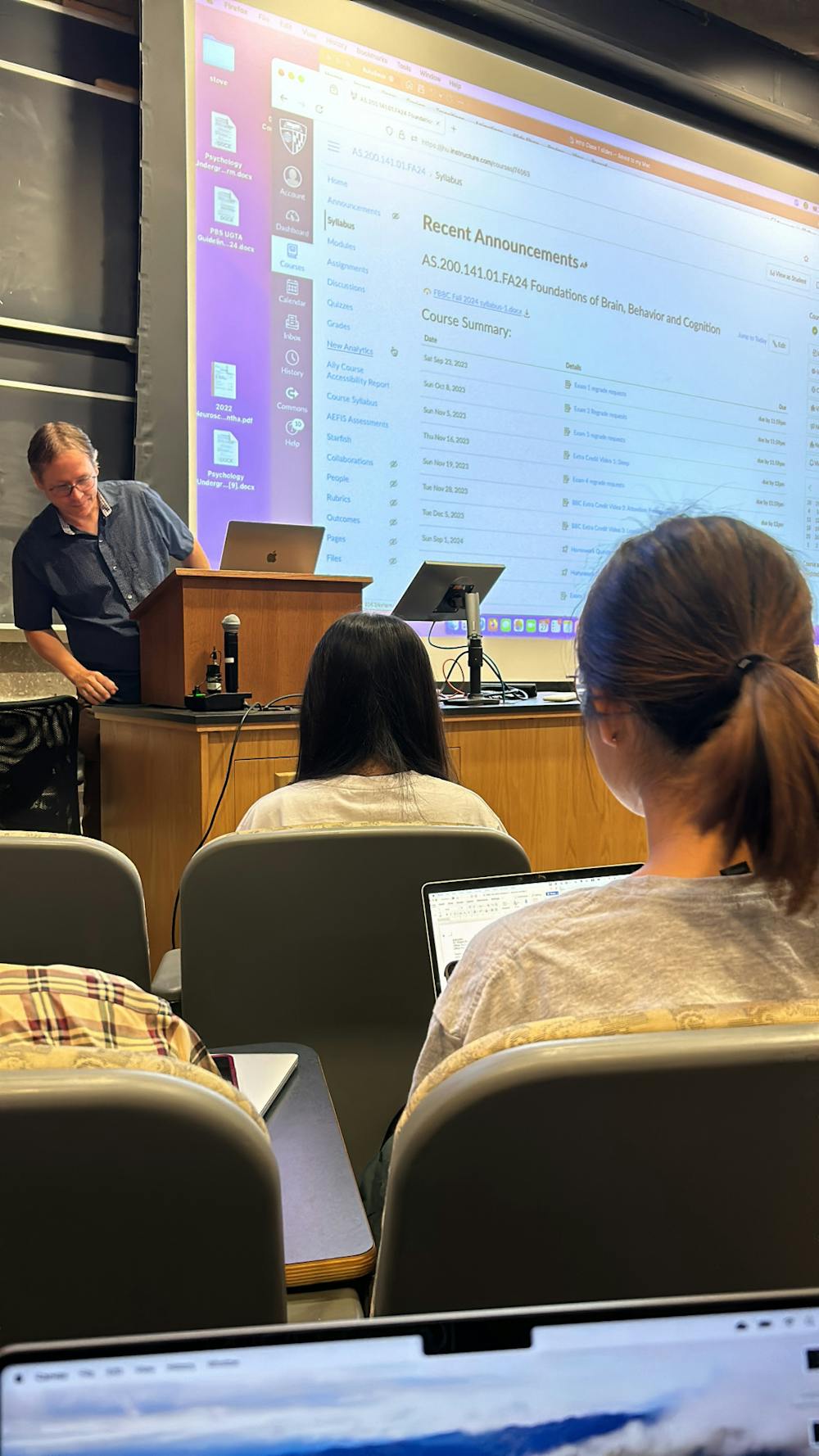I didn’t expect a classroom to feel like home — not so early, not so suddenly.
One of the first classes I took at Hopkins during the fall of my freshman year was called Foundations of Brain, Behavior and Cognition (FBBC). A mouthful, I know. But I remember the syllabus hitting my inbox and something inside me sparking like a firing neuron. At first glance it was intimidating: five exams, one of them barely two weeks away. The kind of course you brace yourself for. But I didn’t know that buried under all the terminology and early assessments was a class I would end up loving. Not for how it tested me but for how it made me think.
I walked into that lecture hall with quiet reverence. I was ready to learn, yes, but I wasn’t ready for how much it would mean. I didn’t know that this class would turn the brain into a kind of poetry for me — cells talking in voltage, systems synchronizing into meaning, behaviors mapped into neural loops and feedback. Week by week we peeled back the layers: neuroanatomy, neurophysiology, perception, motivation, memory. Not just what the brain does but why it matters. Why the hypothalamus stirs hunger. Why the amygdala winces before the rest of you knows you’re afraid.
It wasn’t just about knowledge — it was about clarity. I wasn’t just learning neuroscience. I was remembering that I belonged to it. That I wanted to spend my life listening to the whispers of neurons and trying to decode them. FBBC didn’t just teach me to memorize brain structures. It gave me a framework for curiosity, a way to trace behavior back to biology. It confirmed something I’ve always quietly known: that my heart beats a little faster in the presence of a good mystery, and the brain — yours, mine — is the most intimate mystery there is.
But the journey didn’t stop in the fall.
During the spring I took a Reintroduction to Writing class with a title as strange as it was magnetic: Forensics Between Fact and Fiction. I chose it on instinct. I didn’t know it would change the way I see the world or myself.
This class didn’t hand us grammar rules or five-paragraph structures. It handed us a magnifying glass. It asked us to slow down. Observe. Question. We weren’t just writing; we were investigating. Ourselves, mostly. The clues we leave behind in our own language. The patterns that reveal what we believe without ever saying it. Every week we built case files — on characters, on strangers, on ourselves. Sometimes I’d stare at a sentence I’d written and realize I didn’t know where it came from. But it felt honest.
In one of our assignments we had to write a personal narrative framed like a mystery. That was the moment something clicked. Writing, I realized, wasn’t just an academic skill. It was a kind of forensic tool. It let me trace the outlines of my own thoughts and inspect the quiet parts of my experience I had been overlooking.
That class made me fall in love with writing. Not performative writing. Not essay-for-a-grade writing. But the kind that helps you figure out who you are when you’re not trying to be anyone. The kind that led me here — to The News-Letter — to tell stories that don’t always resolve but still matter.
Looking back, I think FBBC and my writing class were mirror images of each other. One gave me the language of neurons; the other gave me the language of nuance. One taught me how memories form; the other taught me how to examine them. In different ways both asked me the same question: What are you made of?
I still don’t have a full answer. But I know now that mine includes action potentials and metaphors. Cortices and case files. Scientific precision and narrative ambiguity. And somewhere in the middle, a quiet sense that I’m exactly where I need to be.
If you’re a freshman reading this, unsure of what classes to take, I won’t pretend to give you a roadmap. But I’ll say this: Choose one class that speaks to your intellect and one that speaks to your soul. If you’re lucky, they might turn out to be the same. If you’re luckier still, they’ll make you someone you weren’t before.
That’s what happened to me. And it all started with a brain and a pen.
Nishad Okutoyi is a sophomore majoring in Neuroscience from Nairobi, Kenya.





